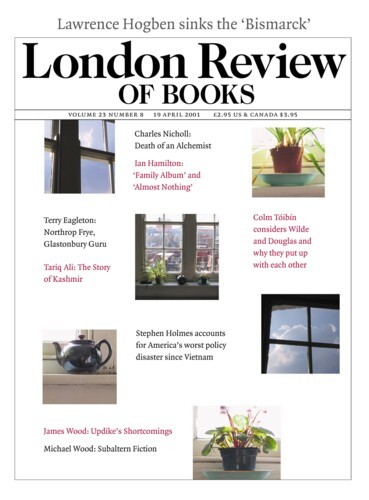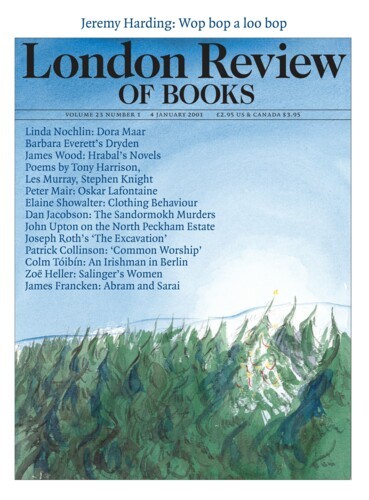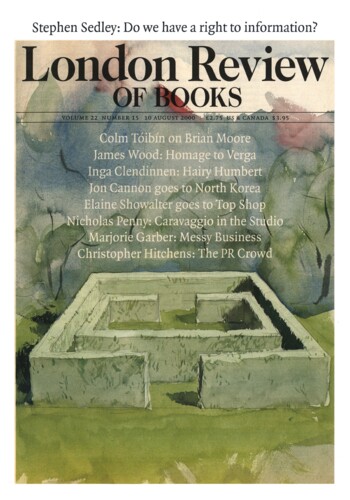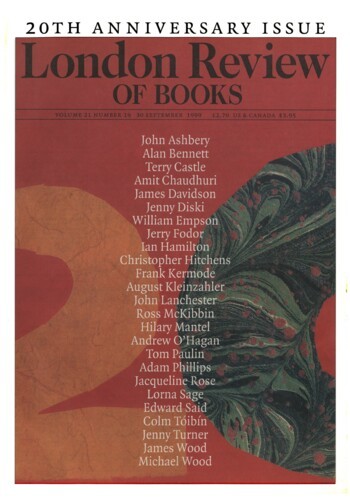Love in a Dark Time: Oscar Wilde
Colm Tóibín, 19 April 2001
The first two months of 1895 were busy for Oscar Wilde. In late January he was in Algiers with Alfred Douglas. He wrote to Robert Ross: ‘There is a great deal of beauty here. The Kabyle boys are quite lovely. At first we had some difficulty procuring a proper civilised guide. But now it is all right and Bosie and I have taken to haschish: it is quite exquisite: three puffs of smoke and...




